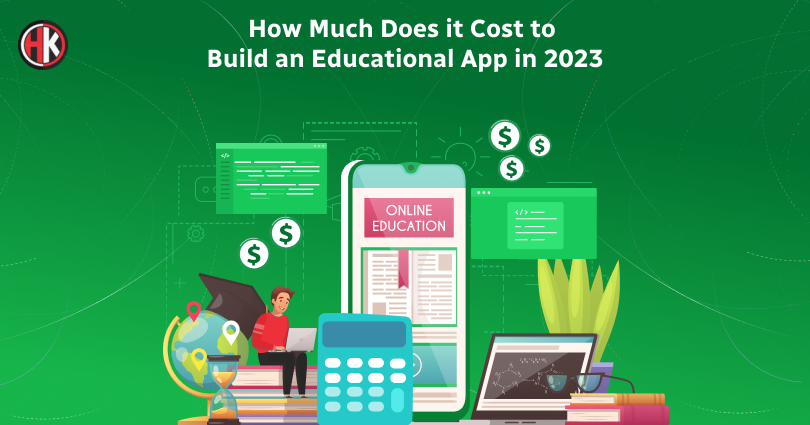
In today’s digital age, technology is becoming an increasingly important part of education. One way that technology is being used in education is through the development of E-learning apps. E-learning platforms are applications that provide users with a variety of educational resources and tools.
These apps can be used for everything from learning a new language to studying for a college exam. With the increasing popularity of e-learning platforms, many people are wondering how much it will cost to build an Educational app in 2023.
The cost of building an educational application can vary greatly depending on a number of factors. Some of the factors that can affect the cost of an app include the complexity of the app, the number of features that are included, and the development team that is hired to create the app.
In general, the more complex an app is, the more expensive it will be to develop. Additionally, the cost of an app can also be affected by the number of features that are included.
In this blog, we will deep dive into the world of EdTech apps and explore the various types available, as well as the costs associated with developing them.
Additionally, we will provide some valuable tips on how to ensure that your app is top-notch and provides a great learning experience for users.
Table of Contents
Types of E-learning apps
E-learning apps that are used for distance learning can be separated into three categories based on their intended use and the group of people they are meant to serve. There are several types of e-learning apps that can be broadly classified into the following categories:
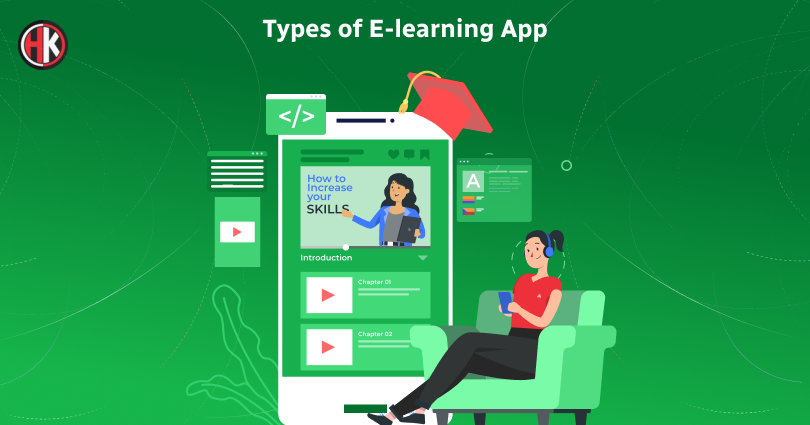
1. Online Tutoring
Online tutoring apps are designed to provide personalized and interactive education to students through one-on-one tutoring sessions with experienced teachers or tutors. These apps can be used for preparing for competitive exams, such as IIT-JEE, UPSC, and more, or for additional support in a specific subject.
The tutors on these apps are subject-matter experts and have the ability to adapt to the student’s learning style and pace. They use a variety of teaching methods, such as interactive video lessons, quizzes, and assessments, to help students understand and retain the material.
Examples: Byjus, Vedantu, Gooroo App, Whiz Tutor, etc.
2. Study Material and Test Preparation:
Study Material and Test Preparation apps are designed to provide students with the necessary resources and tools to prepare for competitive exams. These apps offer a wide range of study materials, including e-books, videos, and question banks, which are tailored to specific exams.
They also provide access to practice tests and mock tests that help students to evaluate their understanding of the material and identify areas that need improvement.
Examples: Testbook, Toppr, Quizlet, etc.
3. Language Learning
Language learning apps provide interactive lessons and resources for users to learn a new language. These apps use a variety of techniques, such as gamification and spaced repetition, to make the learning process engaging and effective. They are often used for learning English, which is in high demand in India and many other countries around the world.
Duolingo is a popular language-learning platform that offers a wide range of languages to learn, including English. It offers interactive lessons, quizzes, and exercises to help users improve their reading, writing, listening, and speaking skills.
It also includes features like personalized study plans, progress tracking, and the ability to compete with others to keep users motivated.
Examples: Duolingo, Babbel, etc.
4. Educational Games and Interactive Learning
Educational Games and Interactive Learning apps are designed to make learning fun and engaging for students of all ages. These apps use a variety of games and interactive activities to help students learn and retain new information in an interactive and entertaining way.
The games and activities are designed to be challenging and engaging, while also providing educational value.
Examples: SplashLearn, ProdigyMath, etc.
5. MOOCs :
Massive Open Online Courses (MOOCs) are a type of e-learning platform that provides a wide range of courses from different universities and educational institutions around the world for free or low cost.
These apps offer a variety of courses on different subjects, such as computer science, business, humanities, and many more. They are designed to be accessible to a large number of students, regardless of their location or background.
6. Corporate Training
Corporate training apps are designed specifically for employee training and development in companies and organizations.
These apps provide a wide range of courses and resources to help employees improve their skills and knowledge, and stay up-to-date with the latest industry trends and best practices.
Examples: Grovo, KitabooInsight, etc.
Read More:- 15 Best Food Delivery Apps in the USA and How Do they Work?
How Much Cost to Build an Educational App Based on a Platform?
The cost of building an educational application in India can vary widely depending on a number of factors, such as the complexity of the app, the number of features, and the platform on which it will be built.
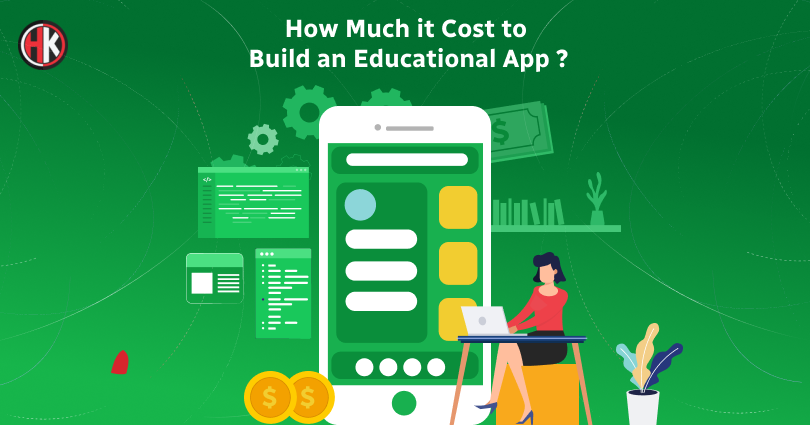
- Basic App
For a basic e-learning app with simple functionality such as course videos, notes, and Quizzes the cost could range from approximately $2,500-$6,250.
2. Complex App
For a more complex app with advanced features, gamification, and real-time communication, the cost could range approximately from $12,500 to $25,000.
3. Advanced App
For a more sophisticated and advanced app, which requires more complex features, such as artificial intelligence and machine learning, the cost can go up to even $150,000 or more.
Education App Development Costs based on Platform:
| Platform | Cost |
| iOS | $20,000 – $75,000 |
| Android | $20,000 – $70,000 |
| Cross-platform | $25,000 – $60,000 |
Cost of E-learning app based on country
| Country | Cost per Hour |
| USA | $100 – $150 |
| Eastern Europe | $95 – $130 |
| Ukraine | $40 – $80 |
| India | $15 – $50 |
These are the average costs for educational app development. The final cost for your project may vary depending on the specific requirements and the developers chosen.
It’s also important to consider that the cost of app development is not a one-time expense and that you will need to budget for ongoing maintenance and updates to keep your app running smoothly.
How to Reduce the Educational App Development Cost
There are several ways to reduce the cost of developing an app for E-learning, including:
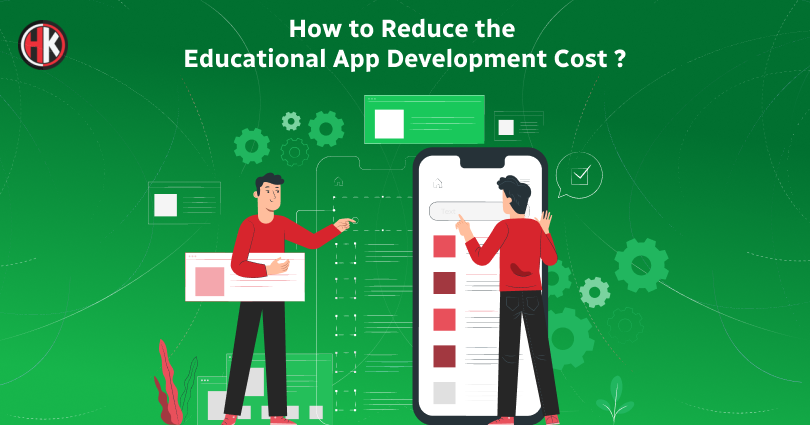
Prioritize features:
Identify the most important features of your app and prioritize them. This will allow you to focus on what’s essential and potentially cut down on unnecessary features that could add to the cost.
Use open-source technologies:
Using open-source technologies such as React, Angular, and Vue.js can help to reduce the cost of development as it eliminates the need to purchase expensive licenses.
Outsourcing
Outsourcing app development companies in India or other countries with lower labor costs can help to significantly reduce the cost of development.
Cross-platform development:
Building an app that can run on multiple platforms (e.g. iOS and Android) at once will help you to reach more users and reduce the cost of development. These tips can help you to reduce the cost of development, but it’s important to ensure that your app still delivers a great user experience and meets the needs of your users.
While cutting costs is important, it should not come at the expense of the app’s quality or functionality. It’s also important to consider the long-term costs and benefits of the app. For example, while outsourcing development may save money in the short term, it may lead to higher long-term costs if the app requires ongoing maintenance and updates.
Ultimately, it’s important to strike a balance between reducing costs and ensuring that your app meets the needs of your users and delivers a great user experience.
Popular E-learning platforms and their Cost of Development:
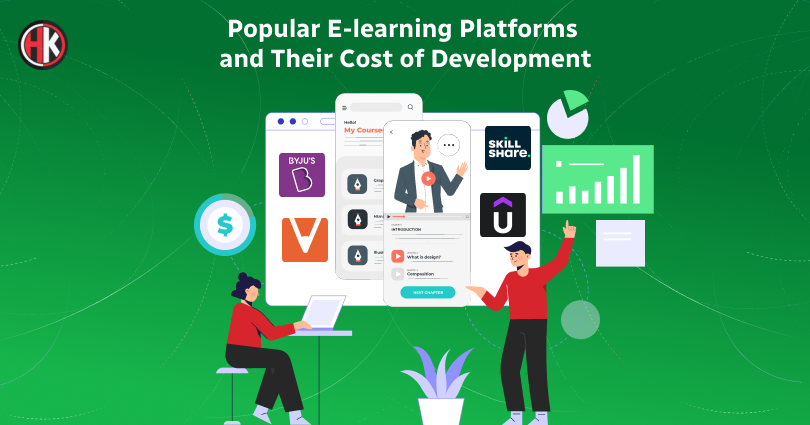
1. Unacademy
Unacademy is a popular e-learning platform in India that offers live and recorded classes for competitive exams such as IIT-JEE, UPSC, and more. The cost of development for a platform like Unacademy can range from $12,000-$24,000.
2. Duolingo
Duolingo is a popular American e-learning app that offers language learning courses in over 30 languages. The app uses gamification techniques to make learning fun and interactive.
The cost of building an app like Duolingo would depend on the complexity of the features and functionality. On average, the cost of building an app like Duolingo could range from $50,000 to $150,000.
3. Khan Academy:
Khan Academy is an American e-learning app that offers a wide range of educational courses, from K-12 subjects to college-level courses. The app is known for its high-quality video lectures and interactive quizzes.
The cost of building an app like Khan Academy would depend on the number of courses and features offered. On average, the cost of building an app could range from $80,000 to $200,000.
4. Coursera:
Coursera is an American e-learning app that offers online courses from top universities and educational institutions. The app offers a wide range of courses, from computer science to humanities, and is known for its interactive learning experience.
The cost of building an app like Coursera would depend on the number of courses and features offered. On average, the cost of building an app could range from $100,000 to $250,000.
Read More:- Why ERP is Essential for any Businesses?
E Learning App by Hackerkernel
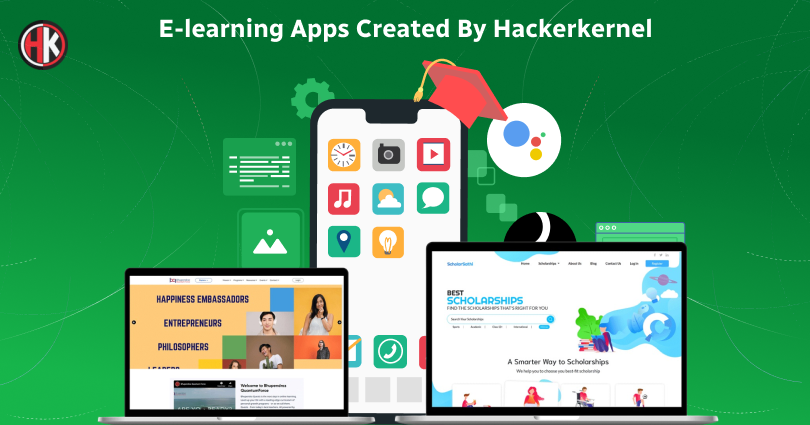
1. School KYC
This app provides convenience for School KYC applications. It allows users to stay updated on their ward’s classwork, homework, and other activities. Both IOS and Android users can avail of benefits from this app.
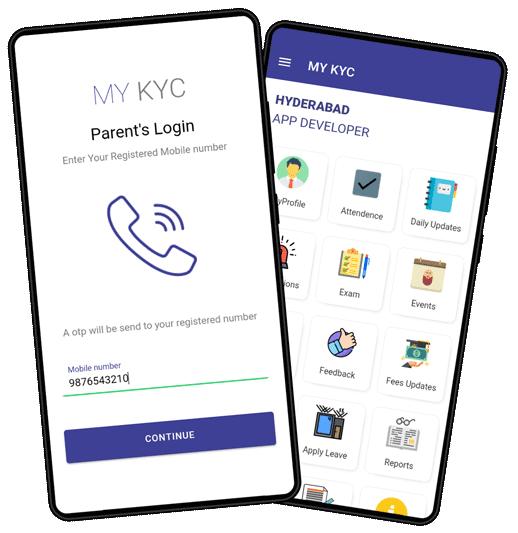
It allows users to log in as a teacher or parent to monitor and stay informed about the learning progress and school-related activities of their students and keep records of daily diaries, attendance, events, fee updates, and live classes.
2. Bhupendraz Quantum Force:
This initiative enhances education through personality growth programs and curriculum. Bhupendraz Quantum Force offers a range of life mastery tools and combines daily microlearning with personal development opportunities.

Explore programs designed for multi-dimensional growth, read research papers, access sessions, watch talks, and listen to podcasts. Offers free courses and subscription plans for additional resources.
3. Eduzina:
Eduzina, founded in 2011, is dedicated to helping international students find the right Indian universities and courses. The platform offers an online application system, subject selection guides, admission offers, and university comparison tools.
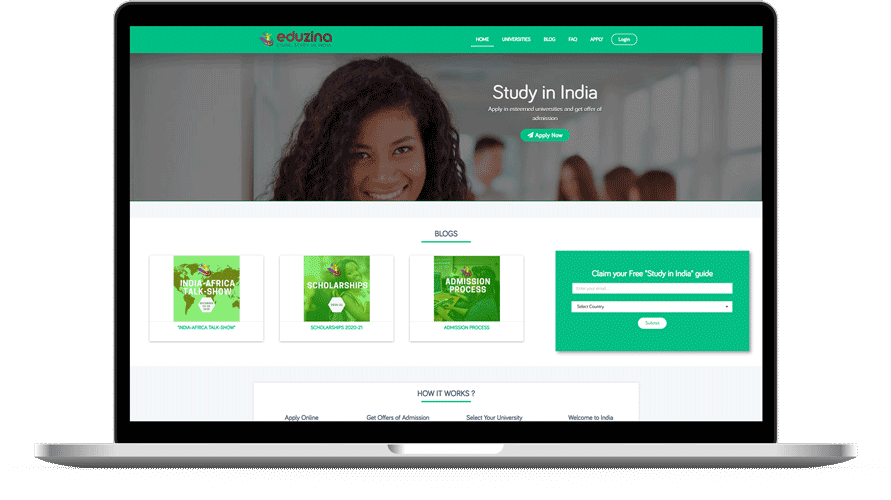
It provides guidance and assistance at every step of the process, from initial course selection to final enrollment. Eduzina is a one-stop shop for international students looking to study in India, making the process more manageable and user-friendly.
Read More:- 10 eCommerce App Features Your Business Needs
What Technology Stack is used for building e-learning apps?
The technology stack used for building an e-learning app can vary depending on the specific requirements of the project, but some commonly used technologies include:
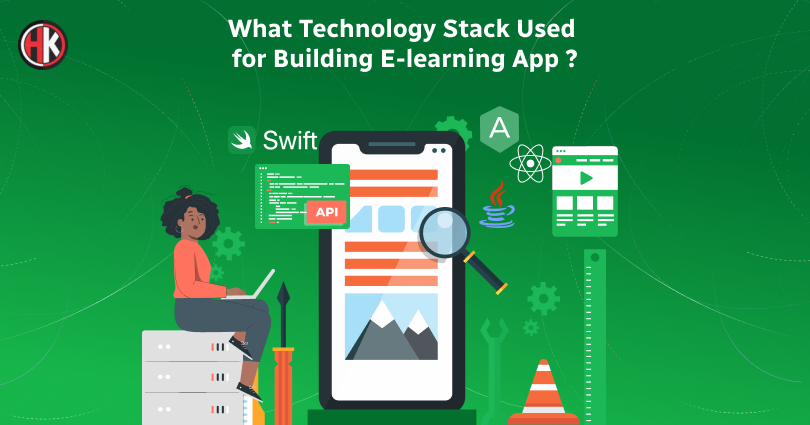
1. Front-end development:
HTML, CSS, JavaScript, and JavaScript frameworks such as React, Angular, or Vue.js are commonly used for building the user interface of an e-learning app. These technologies provide structure, styling, interactivity, and pre-built components to quickly and efficiently develop the user interface.
They also allow for reusable components and flexibility in adaptability to different devices and platforms, which is important for e-learning apps.
2. Back-end development:
Node.js, Express.js, and Ruby on Rails are commonly used in e-learning apps for handling server-side tasks and data storage. They offer high performance, flexibility, scalability, and maintainability.
Node.js is a JavaScript runtime and Express.js is a popular web framework that runs on top of Node.js, Ruby on Rails is a web framework that allows easy building of web applications. They allow developers to create a strong, flexible, and scalable e-learning app that can handle a lot of data and users.
3. Cloud hosting:
AWS, Google Cloud, and Microsoft Azure are commonly used for hosting and scaling e-learning apps. These cloud providers offer a variety of services such as storage, databases, hosting, and scaling services.
They allow developers to easily scale their applications and ensure that the app is always available to the users with their global network of data centers.
4. Analytics:
Google Analytics, Firebase Analytics, and Mix Panel are widely used tools for tracking user engagement and app performance. They provide valuable insights on user demographics, acquisition, behavior, and conversions which help developers and app owners to improve their app and user experience.
Google Analytics is a web and mobile app analytics service, Firebase Analytics is a free and unlimited analytics solution and Mixpanel tracks user engagement and behavior within mobile apps.
Read More:- How to Create an eCommerce Store like Amazon?
How We Can Help you Building an Educational app:
Hackerkernel is a software development company that offers a range of services to help clients build and launch their own apps. Some of the ways that Hackerkernel can help you to build an Educational app include:
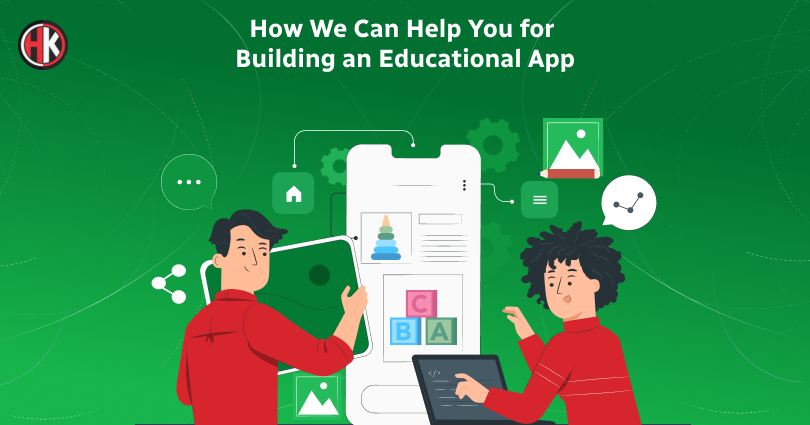
Consultation:
We can provide consultation services to help you define your project goals and identify the features and functionalities that your app will need to have.
Design and Development:
We can help you to design and develop your E-learning application, using the latest technologies and programming languages. They can help you build the front-end, back-end, and database of the app.
Testing and Quality Assurance:
We can help you test and quality assure your app to ensure that it is free of bugs and runs smoothly.
Maintenance and Support:
After the launch of the app, we can help you with maintenance and support of the app, ensuring that it stays up to date and runs smoothly.
Integration of AI/ML :
Integrating AI/ML technologies into an educational app can help to improve user engagement and personalization, making the app more effective in delivering education and adapting to the student’s needs and preferences.
We can help you in integrating these technologies into your app and make it more interactive, personalized, and efficient.
Conclusion
Building an educational app in 2023 can vary greatly in terms of cost, depending on the features, functionality, and technologies used. Factors such as the complexity of the app, the number of features, and the technologies used can all impact the cost.
On average, the cost of building an educational app can range from $50,000 to $250,000. It is important to note that the cost of building an app can also vary depending on the location and the development team you choose.
Hiring a team of experienced developers, designers, and project managers can help to ensure that the app is built to the highest standards and is delivered on time and within budget.
Overall, building an educational app can be a significant investment, but with the right team and approach, it can be a worthwhile investment that can help to improve education and make learning more accessible to students around the world.

Husain Saify
Founder & CEO
Hey, I am Husain Saify, the Founder and CEO of Hackerkernel. I like to share some valuable information about Industry. You can also Reach Out to me On Linkedin.hello@hackerkernel.com

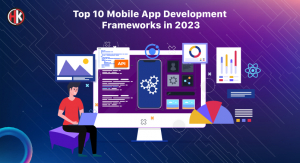
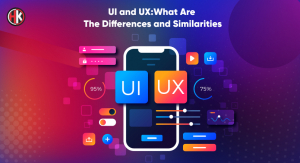
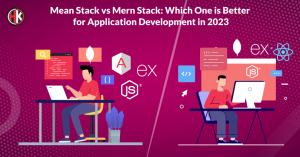
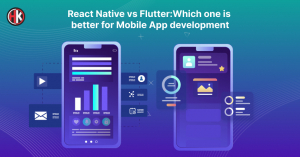
[…] Educational app development cost is accessible for everyone and inexpensive for everyone because students can access instructional applications for a small fraction of the price of traditional classroom instruction. This is crucial for students in developing nations who lack access to high-quality education because of financial limitations. […]